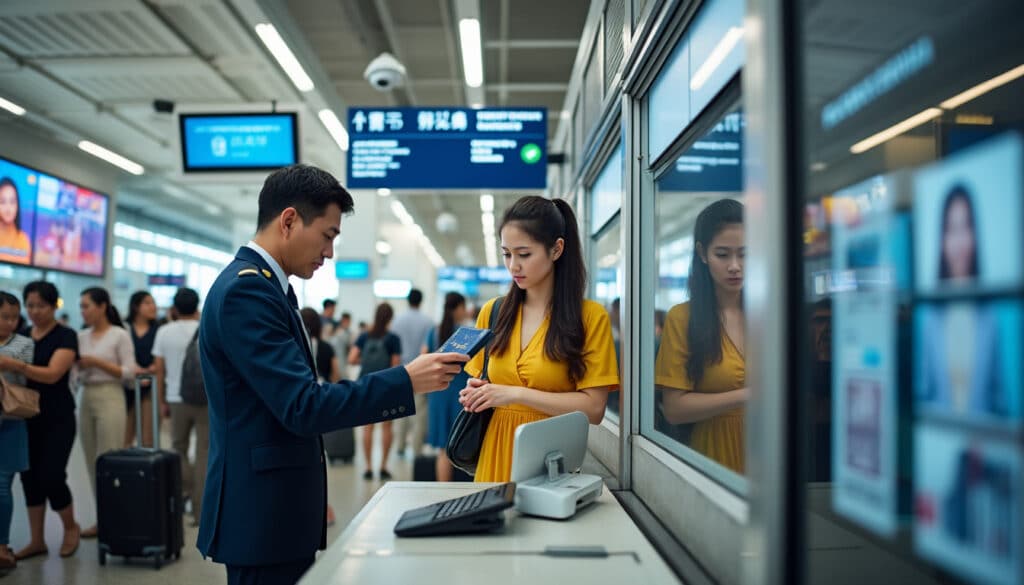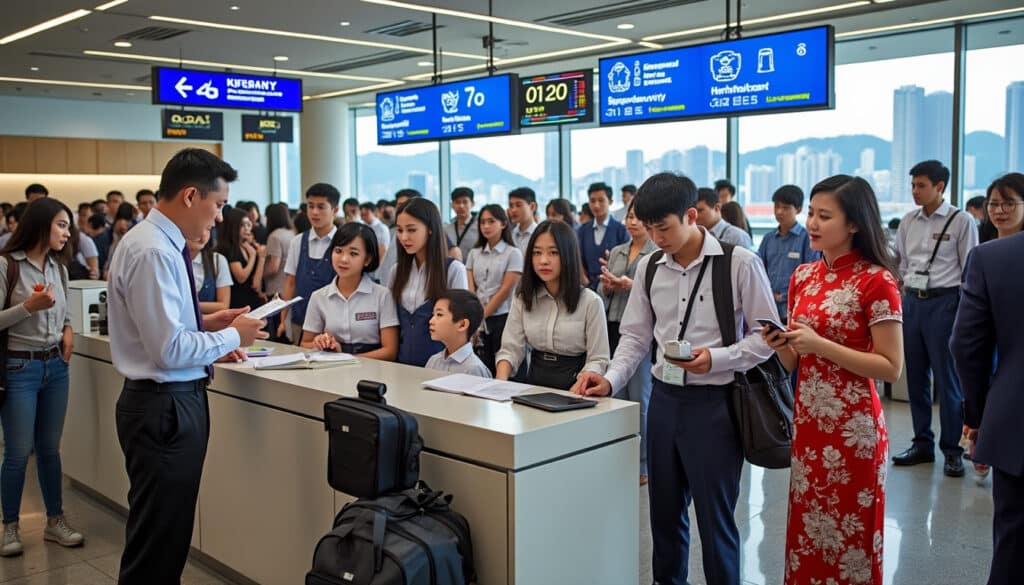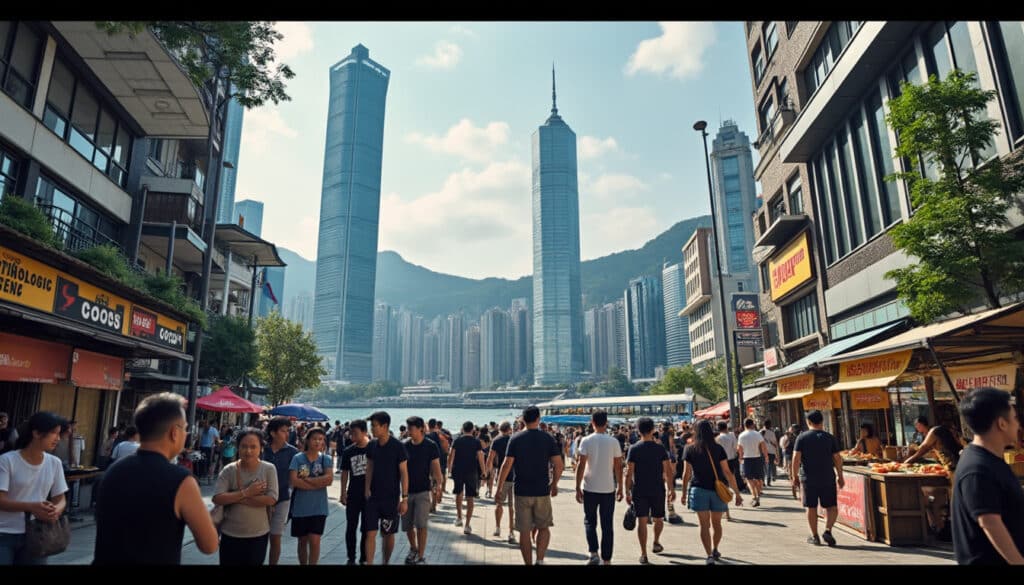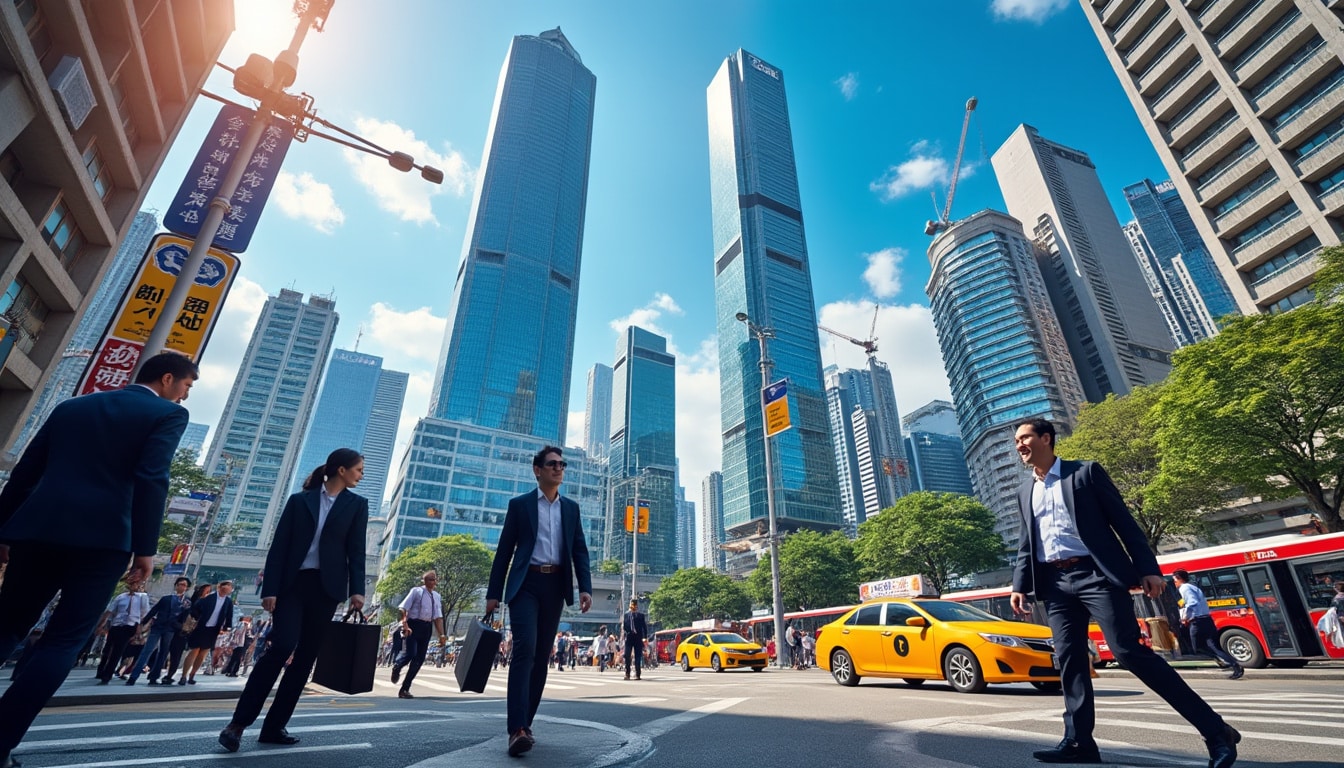In the bustling metropolis of Hong Kong, the legal landscape is as dynamic as its skyline. Understanding the intricacies of the law in this Special Administrative Region of China is crucial for residents and visitors alike. With a legal system blending traditions and modern regulations, Hong Kong presents a unique judicial environment.
The Hong Kong Legal Framework: An Overview
The legal system in Hong Kong is often praised for its fairness and independence. It operates under a common law framework, heavily influenced by the British legal system from the colonial era. Post-1997, the Basic Law became the cornerstone of Hong Kong’s legal system, serving as the region’s mini-constitution. This legal document ensures the autonomy of the Hong Kong Special Administrative Region (HKSAR) and preserves the “one country, two systems” policy.
The Basic Law is complemented by local ordinances. These laws are enacted by the Hong Kong Legislative Council, ensuring they meet the needs of this ever-evolving city. Local laws cover a range of areas from commercial operations to human rights, providing a robust legal landscape. The Basic Law guarantees the preservation of rights such as freedom of speech and the press, making it a pivotal document that links back to Hong Kong’s commitment to rule of law and individual liberties.
The judiciary remains an integral pillar of Hong Kong’s political structure. It comprises several levels of courts, with the Hong Kong Court of Final Appeal sitting at the apex. This court ensures the final interpretation of laws, playing a vital role in maintaining judicial independence. Below it, the court system is divided into various levels handling different types of cases, ensuring specialized attention to diverse legal matters.
| Level of Court | Type of Cases | Key Functions |
|---|---|---|
| Hong Kong Court of Final Appeal | Appeals on crucial legal matters | Final interpretation of Hong Kong laws |
| High Court | Serious criminal and civil cases | Initial appellate jurisdiction |
| District Court | Intermediate criminal and civil cases | General jurisdiction in civil and criminal cases |
| Magistrates’ Courts | Minor criminal offences | Summary trials for less serious crimes |
At the heart of this structure, the Department of Justice Hong Kong plays a pivotal role. It prosecutes criminal cases, represents the government in lawsuits, and advises on legal issues. The department not only safeguards the interests of the public but also ensures laws are fair and applied consistently across the city.
Legal Institutions and Their Roles
A series of bodies complement the courts and the Department of Justice, ensuring a comprehensive approach to legal matters. The Hong Kong Bar Association serves as a professional body for barristers, upholding standards of conduct and supporting the administration of justice. Meanwhile, the Law Society of Hong Kong oversees solicitors, ensuring integrity and competence among legal practitioners.
Beyond traditional legal bodies, Hong Kong hosts institutions like the Hong Kong International Arbitration Centre, providing alternative dispute resolution mechanisms. This centre is pivotal for commercial disputes, reflecting Hong Kong’s status as an international business hub.
- 🎓 Training and education provided by the Law Society and Bar Association ensure consistent standards.
- 🏛️ Professional development for lawyers and barristers enhances the quality of legal services.
- 📊 Regulation and discipline are maintained to uphold public confidence in the legal profession.
Through these carefully organized structures, Hong Kong’s legal system remains robust and adaptable, meeting the legal needs of a vibrant and international community.

Regulatory Bodies and Their Impact on Hong Kong’s Legal System
Hong Kong’s regulatory landscape is pivotal in ensuring stability and trust in both the domestic and international spheres. The city boasts a wide range of regulatory bodies, each with its distinct role in maintaining law and order.
The Hong Kong Monetary Authority (HKMA) is a leading player in managing the city’s financial stability. Established in 1993, its primary goal is to maintain monetary stability, control the currency, and promote the soundness of the financial system. The HKMA ensures transparency and fair practices, which are essential for maintaining Hong Kong’s status as a global financial center.
Working closely with the HKMA is the Securities and Futures Commission (SFC). This body’s role is to oversee and regulate the securities and futures markets in Hong Kong. By enhancing market transparency and protecting investors, the SFC plays a crucial role in sustaining market confidence and integrity.
- 🔍 Monitoring financial and securities markets with vigilance
- 💼 Ensuring transparency and ethical practices in financial transactions
- 🛡️ Protecting investors’ rights and interests with rigorous enforcement
Additionally, the Consumer Council Hong Kong advocates for consumer rights, ensuring that shoppers receive fair treatment and honest services. This council actively conducts studies, publishes findings, and makes policy recommendations to improve consumer welfare.
For those in need, the Legal Aid Department provides crucial support by offering legal services to those who may not afford them otherwise. This ensures that justice is accessible to all, regardless of economic background. By allowing individuals to seek legal recourse, this department maintains a balance of fairness and equity within the judicial system.
Facilitating Fair Trade and Consumer Protection
Ensuring fair trade practices is another key commitment of Hong Kong’s regulatory bodies. Competition laws introduced in recent years aim to foster an open market environment by deterring and penalizing anti-competitive practices. This framework encourages businesses to operate ethically and innovatively, promoting a more dynamic market space.
In conclusion, through these regulatory bodies and their diligent efforts, Hong Kong maintains its stature as a jurisdiction of fairness and efficacy. With principles rooted in transparency and accountability, the city continues to thrive as a global economic powerhouse.
Legal Resources and Guidance for the Public
One of Hong Kong’s strongest pillars is its commitment to making legal information accessible to the public. Institutions like the Community Legal Information Centre (CLIC) lead this initiative by providing legal knowledge to Hong Kong residents efficiently.
CLIC is a bilingual online service created by the University of Hong Kong’s Law & Technology Centre. Its mission is to bridge the gap between the complex legal world and the general public by offering insights into legal issues that impact daily life. Whether it’s understanding tenancy agreements or employment rights, CLIC provides comprehensive and actionable guidance.
- 📚 Bilingual resources available to aid non-Chinese speakers
- 🔑 Tools and guides for comprehending basic law issues before consulting professionals
- 📍 Information on legal aid and how to access free or subsidized advice
Other resources include the Hong Kong e-Legislation database, which provides free online access to current and consolidated legislation of Hong Kong. This repository is essential for those seeking to understand the legal obligations and rights within the region’s framework.
The Role of Educational Institutions and Civic Organizations
Hong Kong’s universities and civic organizations play a significant role in educating the public about legal standards and rights. Workshops, seminars, and public lectures hosted by these entities ensure that legal knowledge permeates through different layers of the community. Such efforts contribute significantly to the public’s ability to navigate legal landscapes with confidence.
These educational initiatives not only empower individuals but also enhance the city’s image as a place where legal rights are understood and respected. In a constantly evolving society, staying informed is key, and resources like CLIC make this goal highly attainable.
Hong Kong’s Legal Challenges and Evolution
Hong Kong’s legal system faces unique challenges as it adapts to the needs of a modern society. With rapid advancements in technology and evolving socio-political dynamics, its laws constantly undergo evaluation and adjustment.
One aspect under scrutiny is the balance between maintaining civil liberties and addressing security concerns. As technology permeates every aspect of life, laws around cybercrime, data privacy, and technology use become increasingly pivotal.
The evolution of data privacy laws illustrates this perfectly. In recent years, Hong Kong has implemented regulations that align with global standards, protecting individuals’ information from misuse. However, technology-driven legal issues remain complex, calling for continuous legislative updates.
Environmental Laws and Sustainability Goals
Hong Kong’s commitment to sustainability reflects in its environmental legal frameworks. New policies focus on reducing carbon footprints, managing waste, and promoting green technologies. By enforcing these laws, the city aims to address local and global environmental challenges.
- 🌿 Green building ordinances encourage eco-friendly developments
- 🔋 Incentives for renewable energy integration into the urban landscape
- 🚮 Waste reduction laws targeting both industrial and residential sectors
These efforts are part of a broader strategy to ensure the city remains resilient in the face of climate change, while also setting an example for other metropolitan regions.
Practical Tips for Navigating Hong Kong’s Legal System
Navigating the legal landscape can be daunting, but understanding a few key factors can simplify the process dramatically. Knowledge is power, especially when it comes to legal matters. Here are some practical tips to follow when dealing with Hong Kong’s laws.
Firstly, always verify the legal status of information with official resources. Sites like the Hong Kong e-Legislation and databases offered by the Department of Justice Hong Kong provide reliable updates and are indispensable for accurate legal information.
Secondly, understanding the basic structure of courts and their jurisdictions helps in knowing where to start in legal proceedings. Recognizing which court handles a specific type of case can save time and resources.
- 🧾 Keep document copies and receipts related to legal matters for future reference
- 👥 Consult with the Law Society of Hong Kong or Bar Association for finding qualified legal assistance
- 🔗 Engage in community legal talks to stay informed about legal rights and updates
Lastly, utilizing legal advice hotlines or consulting with the Legal Aid Department ensures access to crucial legal services without incurring prohibitive costs. This is especially vital for vulnerable communities needing legal assistance.
The journey through Hong Kong’s legal system can indeed be navigated successfully with the right tools and knowledge, ensuring that justice and legal rights remain accessible to all.
Frequently Asked Legal Questions in Hong Kong
- What resources are available for understanding Hong Kong laws?
Resources such as the Hong Kong e-Legislation database and CLIC provide crucial information for understanding legal statutes and rights. - How can one access legal aid in Hong Kong?
The Legal Aid Department offers assistance to individuals who cannot afford legal representation, ensuring equitable access to justice. - What is the role of the Hong Kong International Arbitration Centre?
This centre specializes in resolving disputes through arbitration, offering an alternative to traditional court proceedings.
Staying informed and utilizing these resources helps both residents and visitors make well-informed decisions in legal matters amidst the vibrant legal landscape of Hong Kong.

Calling and communication rules in Hong Kong
In the ever-evolving cityscape of Hong Kong, where east meets west, communication plays an essential role in connecting millions. The bustling environment demands a comprehensive understanding of the calling and communication rules to seamlessly integrate into the city’s lifestyle. With…

Criminal status and entry to Hong Kong
Hong Kong, with its blend of the traditional and the ultra-modern, attracts millions of tourists, business travelers, and expatriates each year. Yet, entering this bustling metropolis isn’t always straightforward, especially for those with a criminal history. Ensuring compliance with Hong…

Drinking and age restrictions in Hong Kong
Hong Kong, a vibrant metropolis known for its eclectic blend of Eastern and Western influences, holds a distinct stance on drinking and age restrictions. While the legal drinking age is set at 18, nuances in the law and cultural practices…

Hong Kong is a city that never sleeps, teeming with activities and attractions that cater to both residents and travelers. The city’s dynamic energy is accentuated during its holiday celebrations, offering numerous opportunities for fun and exploration. Whether it’s enjoying…

How to move to Hong Kong legally
Dreaming of a new chapter in one of Asia’s most bustling and dynamic cities? Hong Kong, often celebrated as the “Fragrant Harbour,” is as captivating as it is complex. Moving to this vibrant city brings a unique mix of challenges…

Smoking, drugs, and red light laws in Hong Kong
In Hong Kong, a unique blend of eastern and western influences can be seen in its laws and cultural practices. As Asia’s World City, Hong Kong maintains strict regulations around smoking, drugs, and its notorious red-light district, reflecting both its…

Social and discrimination issues in Hong Kong
Hong Kong, a city renowned for its dynamic energy and cultural diversity, faces significant challenges when it comes to social and discrimination issues. Despite being a global financial hub, the city struggles with underlying tensions that affect its unique identity…

